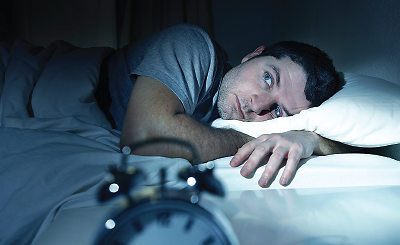Acute Sleep Deprivation May Reduce Impact of Traumatic Memories
Abstract
Holding off on sleep on the first night after watching a traumatic film reduced the frequency of subsequent “flashbacks” over the following week.
Over time, a lack of sleep can lead to a host of cognitive and mood problems. Yet, in acute settings, sleep deprivation has been shown to provide some benefit to the brain. One of the most studied phenomena in sleep deprivation research is its potential to rapidly cure depressive symptoms—at least until the person falls asleep.

Now, research appearing in the journal Sleep has demonstrated that one night of sleep deprivation reduces the impact and intrusiveness of emotional memories, the type that arise from watching or experiencing a traumatic event.
“It may seem counterintuitive, given that people who experience trauma often have difficulty falling asleep to begin with,” said study author Kate Porcheret, Ph.D., a research scientist at the Nuffield Department of Clinical Neurosciences at the University of Oxford. “But we think that forgoing sleep right after a trauma interferes with the consolidation of these emotional memories and prevents them from becoming intrusive.”
Porcheret noted that the exact process by which these memories are formed is still being researched, but the general belief in the field is that emotional memories are likely distinct from typical conscious recollection, with processing that relies more on the emotional situation surrounding an event rather than the context of that event. Delaying memory consolidation by sleep deprivation might therefore serve to distance the emotion from the context.
For the current study, Porcheret and her colleagues showed 42 healthy adults a short film with traumatic content. After asking the participants to report on the immediate effect of the film, the group was split in half, with some sent home for a normal night of sleep while the others went to a sleep lab where they underwent total sleep deprivation.
Video Gaming May Also Help to Reduce Intrusive Memories
While sleep deprivation may help prevent emotional memories from forming, what happens if someone has already formed that traumatic memory?
A study published in the July issue of Psychological Science suggests that videogames—the puzzle game Tetris specifically—may be able to help. Researchers at the University of Oxford and the Medical Research Council Cognition and Brain Sciences Unit at Cambridge University found that engaging in this visuospatial task could also reduce the frequency of intrusive memories. In this case, though, the visuospatial task works to disturb the process of reconsolidation—the time when a memory comes to the surface following a trigger—by competing for the brain’s visual memory.
A total of 51 adult volunteers watched the same trauma video as the participants in Porcheret’s study watched. After 24 hours, the participants returned to the lab, where half performed some filler tasks while the other half were shown some still images from the traumatic film to trigger memories and then played Tetris for 12 minutes. Over the next week, the game players reported fewer intrusive memories than their counterparts. A follow-up test confirmed that both elements—the memory reactivation with photos and the Tetris playing—were required to diminish these emotional memories.
“Computer Game Play Reduces Intrusive Memories of Experimental Trauma via Reconsolidation-Update Mechanisms” can be accessed here.
The next morning, each person was asked to provide their thoughts on the film and then over the next six days they kept a diary in which they were asked to record any intrusive memories that popped into their heads.
The researchers found that compared with the participants who had a good night’s sleep, sleep-deprived participants reported the film to be less disturbing and over the course of the week registered fewer intrusive flashbacks to the film (average of 2.28 versus 3.76 flashbacks).
Though this study only followed the participants for a week, Porcheret noted that other work has suggested that disrupting the initial memory formation can reduce intrusiveness for up to four years.
“Now, these conditions are far removed from an actual traumatic experience, and our aim is not to induce trauma in people, but we think this type of experiment is on the same spectrum in that it creates an environment where intrusive memories can be formed,” Porcheret told Psychiatric News. “So this should serve as a reasonable analogue to real-life traumatic events.”
She did caution that there is still much that needs to be understood about sleep and memory formation before trying to use sleep deprivation as an aid to people who experience pathological intrusive memories, such as those with posttraumatic stress disorder (PTSD) or complicated grief.
This study was supported by a Wellcome Trust Strategic Award to the Sleep and Circadian Neuroscience Institute at the University of Oxford, with additional support from the Medical Research Council and a Wellcome Trust Clinical Fellowship. ■
An abstract of “Psychological Effect of an Analogue Traumatic Event Reduced by Sleep Deprivation” can be accessed here.



